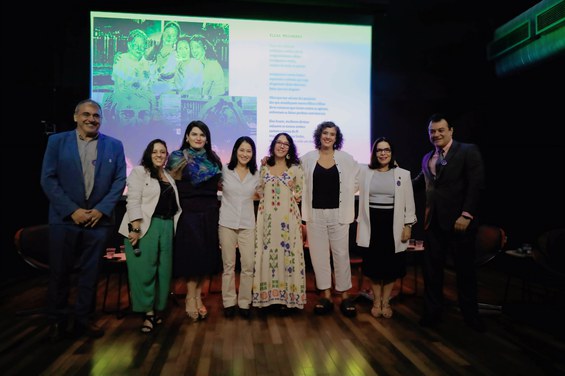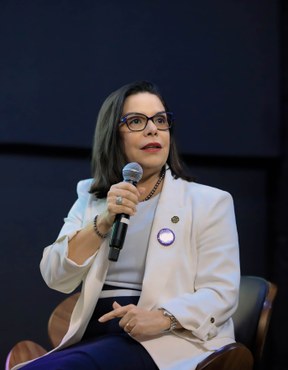
- Photo: Women and Science Debate (Nayara Demarco – CGCOM/CAPES)
On the morning of Friday 8 March, CAPES participated in the Women and Science Debate. The roundtable promoted by the Federal University of Rio de Janeiro (Ufrj) was held in the Inovateca Hall, in that institution's Technology Park. Denise Pires de Carvalho, President of the Foundation, presented figures showing the reality of women's participation in academic circles.

- Photo: Denis Pires de Carvalho, President of CAPES (Niara Demarco – CGOCM/CAPES)
The director explained how the “scissors effect” – a term used to highlight how women lose space in science, as they advance in their careers, without being able to reach the top – appears in the professional lives of women who enter postgraduate studies and occurs in different fields of knowledge. . For example, Denise cited the majority participation of women in graduate school and how there is a reversal “when we look at the number of inventors and patents”: men become the majority.
The President spoke about CAPES actions that promote the quest for justice as a public policy, such as the Notice of International Mobility for the Abdias Nascimento Program, which reserves 50% of vacancies for black, brown, quilomboli, indigenous and rural women. And students with disabilities, prevalent developmental disorders, and high abilities, and highlighted the partnership with Dimensional scienceswhich falls within the scope of the CAPES Thesis Prize, offers a PhD award in the field of biotechnology.
The Coordination of Personnel Improvement in Higher Education (CAPES) is a body linked to the Ministry of Education (MEC).
(Brasilia – CGCOM/CAPES Editorial)
Reproduction of news is permitted as long as it contains the CGCOM/CAPES signature



![[VÍDEO] Elton John’s final show in the UK has the crowd moving](https://www.lodivalleynews.com/wp-content/uploads/2023/06/Elton-John-1-690x600.jpg)

More Stories
The Director of Ibict receives the Coordinator of CESU-PI – Brazilian Institute for Information in Science and Technology
A doctor who spreads fake news about breast cancer is registered with the CRM of Minas
The program offers scholarships to women in the field of science and technology